We received Sewing Without Tears by: Violet Wilson, published in 1972 by Charles Scribner’s Sons, in the early 00’s from a student who thought the title funny as she browsed the thrift store shelves for something amusing.
We opened it to find the forward prefaced by a quote from Publilius Syrus (Late Republican Rome, 42 BCE):
“A fair exterior is a silent recommendation…” *
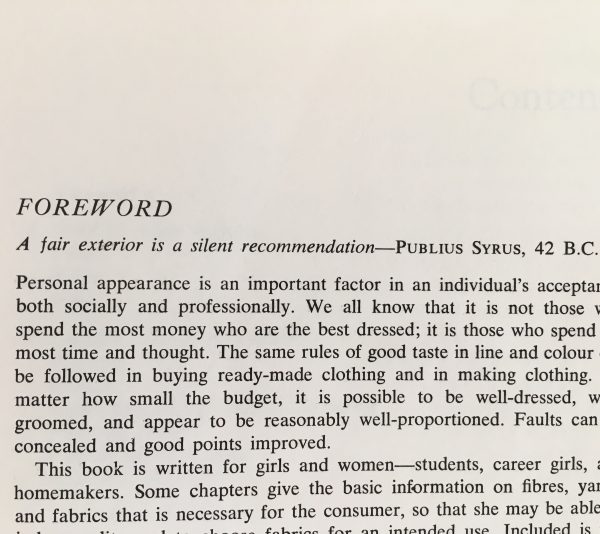
If you quote first century BCE Roman writers to us – either within or without the context of sewing we are going to turn our head, so we dove in.
Wilson has created something interesting here. For a sewing manual, it is very text-heavy. Whether that was intentional and the expectation was that the reader would be educated or experienced enough to divine the techniques she is talking about or whether there just wasn’t enough money in the budget for fuller, richer illustrations is up for debate.
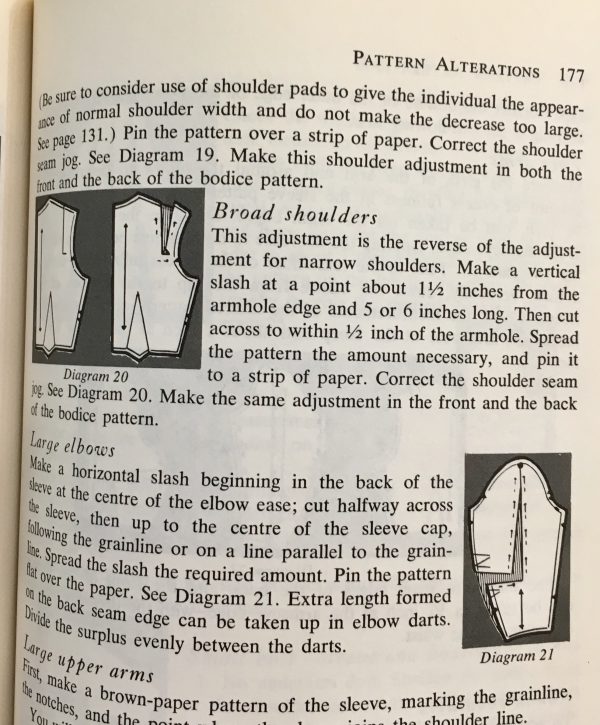
Even though it isn’t as friendly as some of our modern sewing manuals, it really is a thorough and dense book to have on hand for the beginner intermediate student. Wilson goes into things like planning and buying for matching plaids with a directness that is easy to understand.
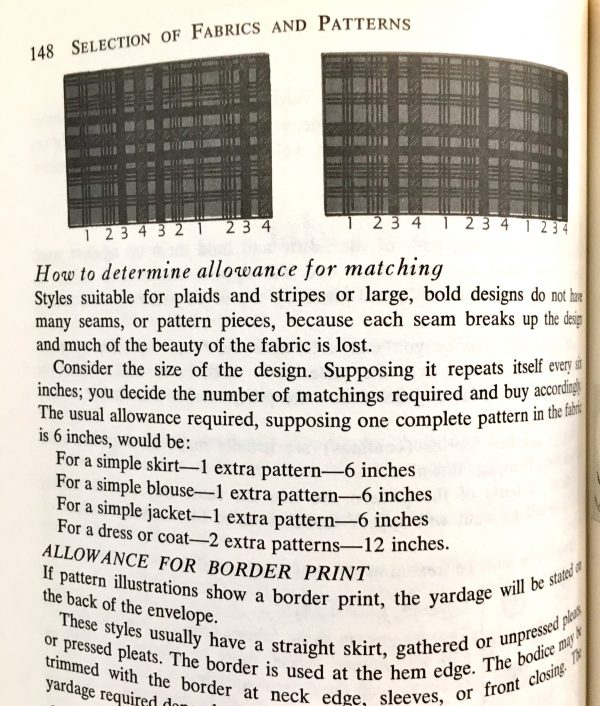
She also shows a pretty good example of the best knot to tie when you are sewing by hand – a dressmaker’s knot as it is called here is what we recommend in class and anchors the stitches better than a knot just tied in the end of the thread. It is more stable and secure.
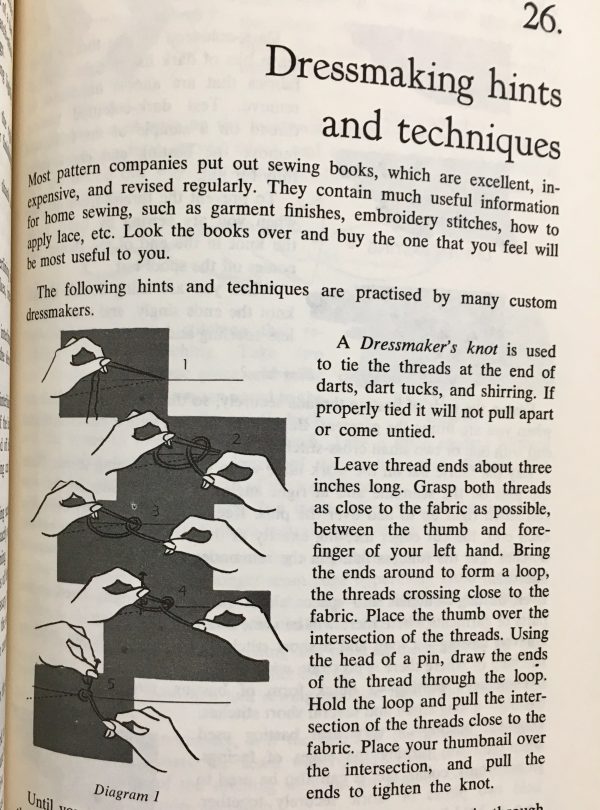
She also has a solid chapter on fabrics that defines, introduces some textile theory, and gives direction in choosing. This chapter is especially funny to us because it seems to show her bias to what would have been modern in 1972 – look at the image below and tell us that her delicate rant about “Sleezy, stretchy jersey…” and try not to laugh as you imagine an old marm in a long skirt and bun saying it.
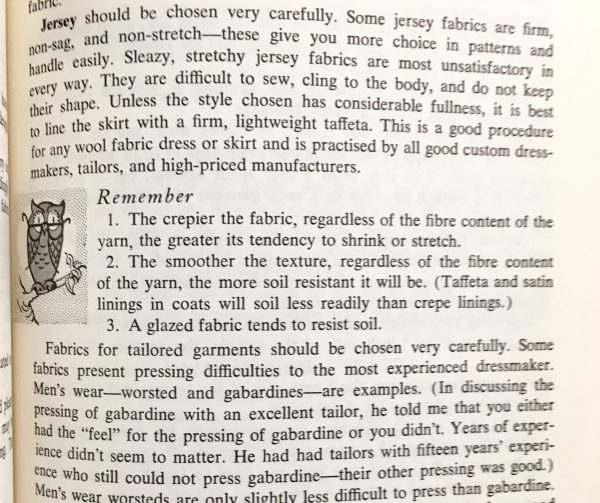
Overall, a really good book for the intermediate sewist. She covers just about everything you would need to know in a fairly approachable way except for the lack of comprehensive illustrations.
This has probably been one of the more comprehensive sewing books we’ve had around – in 350 pages she really takes you on a ride through the world of home sewing with an eye toward professional results.
Chapter rundown:
- Fibers & Yarns
- Fabric Construction
- Natural Fibres
- Man-Made Fibres
- Colour Magic (choosing colors and their uses)
- Becoming Lines (flattering shapes)
- On Being Well-Dressed (fashion & wardrobe advice)
- Sewing Equipment (a bog-standard rundown from a 1972 dressmaker)
- The Sewing Machine
- Pressing
- Body Measurements in Relation to Pattern Selection
- Selection of Fabrics & Patterns
- Fabrics That Present Special Problems
- Pattern Alterations
- Preparing, Cutting, and Marking Fabrics
- Sewing Guide Terms
- Grainlines in Relation to Fitting
- Sleeves
- Alterations and Fitting of the Bodice
- Fitting and Altering Suit Jackets, Suit Dresses, and Coats
- Fitting and Altering Coats
- Altering & Fitting Problem Necklines
- Slacks
- How to Make a Pleated Skirt
- Tailoring a Coat (proper tailoring, not in the sense of just alterations)
- Dressmaking Hints & Techniques
- More Dressmaking Hints & Techniques
- Tricks of the Trade
- Shoulder Pads
- Remakes, Remodelling, and Trimming
- Projects for Beginners
- Judging Clothing
- Stain Removal
Appendix
100 Pertinent Questions
Glossary
Bibliography
Index
ISBN: 684-12887-X
Library of Congress: 78-38767
* So Ms. Wilson is taking a bit of a liberty here in both the quote of the maxim itself and the translation. The quote in its original Latin is “Formosa facies muta commendatio est” which translates better to something like “a beautiful face is a silent recommendation” It is attributed to both Publilius Syrus and Liberius (we don’t know if it was the Preatorian Prefect or the Pope).
